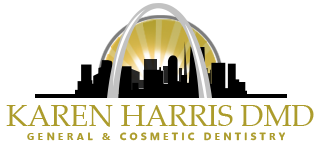TMJ (temporomandibular joint) disorders are a group of conditions that can cause pain in your jaw joint and the muscles that control jaw movement. While many people experience temporary pain associated with problems in the jaw joint, such as jaw clenching or teeth grinding, sometimes the pain can be chronic. TMJ disorders can cause symptoms such as joint pain, difficulty opening your mouth, locking of the jaw, and headaches.
The Symptoms of TMJ Disorders
TMJ disorders can cause a variety of symptoms. The most common of these include:
- Jaw pain
- Loud popping sounds when opening and closing your mouth
- Headaches
- Facial pain
- Difficulty chewing and biting
- Clicking, grating, or popping sounds when opening your mouth
- Facial swelling
- Facial numbness
- Earaches
- Neck aches
If you experience any of these symptoms, it’s important to address the underlying issue. Left untreated, TMJ disorders can cause you to experience permanent damage to the teeth, gums, and jaw. Call us to learn more.
Treatment Options for TMJ Disorders
Diagnosis
Excellent oral health starts with an accurate diagnosis. Our dentist in St. Louis, MO, will first ask about your symptoms and examine your mouth. An X-ray can help diagnose a TMJ disorder.
Our dentist in 63103 may also suggest relaxation techniques, like meditation or yoga. If your symptoms don’t improve, our dentist may recommend an oral appliance or other treatment.
Medication
In addition to medications, our dentist in St. Louis, MO, may provide you with a special dental appliance to wear at night. This appliance will keep your jaw in the proper position to help prevent clenching or grinding. If you are suffering from TMJ disorder, you should make an appointment with our dentists at Karen J Harris & Associates, as soon as possible.
Customized Bite Guards
Customized bite guards are made from a mold of your teeth. These guards are designed to fit comfortably in your mouth and prevent the jaw from sliding and damaging your teeth. In addition to helping treat TMJ, bite guards can also reduce teeth grinding at night.
Night Guards
Night guards are one of the quickest and most effective ways to address TMJ problems. A night guard is worn while you sleep and can help stop teeth grinding and clenching, which relaxes the jaw and relieves pain.
A night guard is designed to fit comfortably over your jaw and teeth. It’s typically made from hard acrylic or soft thermoplastic material. A dentist will make an impression of your teeth and then send it to a lab, where a technician will fabricate your night guard. Night guards are custom fit to your teeth, so they offer the best protection against TMJ disorders.
Orthodontics
Orthodontics can treat TMJ disorders by fixing problems with the bite. Patients may first notice that the jaw is misaligned, which puts stress on the muscles. This can result in pain, headaches, and difficulty eating. Braces or other orthodontic appliances can fix this by aligning the teeth. This relieves the pressure on the jaw and muscles.
Lifestyle Changes to Manage TMJ Symptoms
Living with TMJ disorder can be challenging, but there are lifestyle changes that can help manage the symptoms effectively. One important aspect is maintaining good posture to alleviate pressure on the jaw joint. Avoiding chewing gum and tough foods can also reduce strain on the jaw muscles.
Stress management techniques such as meditation, yoga, or deep breathing exercises can help relax clenched jaw muscles. It's essential to practice good sleep hygiene by ensuring you have a comfortable pillow and sleeping position to prevent grinding your teeth at night.
Incorporating gentle jaw exercises recommended by a healthcare provider can improve jaw mobility and reduce pain. Eating a soft diet and cutting food into smaller pieces can make it easier on your jaws while eating.
Stay hydrated throughout the day, as dehydration can worsen muscle tension in the body, including the jaw muscles. Being mindful of habits like nail-biting or clenching your teeth during the day can also contribute to managing TMJ symptoms effectively.
Importance of Early Diagnosis and Treatment
Early diagnosis and treatment play a crucial role in managing TMJ disorder effectively. Identifying the symptoms early on can prevent the condition from worsening and causing more pain and discomfort.
When left untreated, TMJ can lead to more severe issues such as chronic headaches, jaw locking, and difficulty chewing. Seeking professional help at the first signs of TMJ can make a significant difference in how well it can be managed.
Our dentist who offers TMJ treatment in St. Louis, MO, will be able to provide an accurate diagnosis based on your symptoms and medical history. Treatment options may include lifestyle changes, physical therapy, medication, or even dental procedures depending on the severity of the condition.
Ignoring or delaying treatment for TMJ can result in prolonged suffering and potentially impact your quality of life. By addressing the issue early on, you increase your chances of finding relief and preventing further complications down the line.
To learn more about the advantages of TMJ treatments, contact Karen J Harris & Associates at 2000 Locust, St. Louis, MO 63103 or call (314) 231-4893. Our team will be happy to see you!
